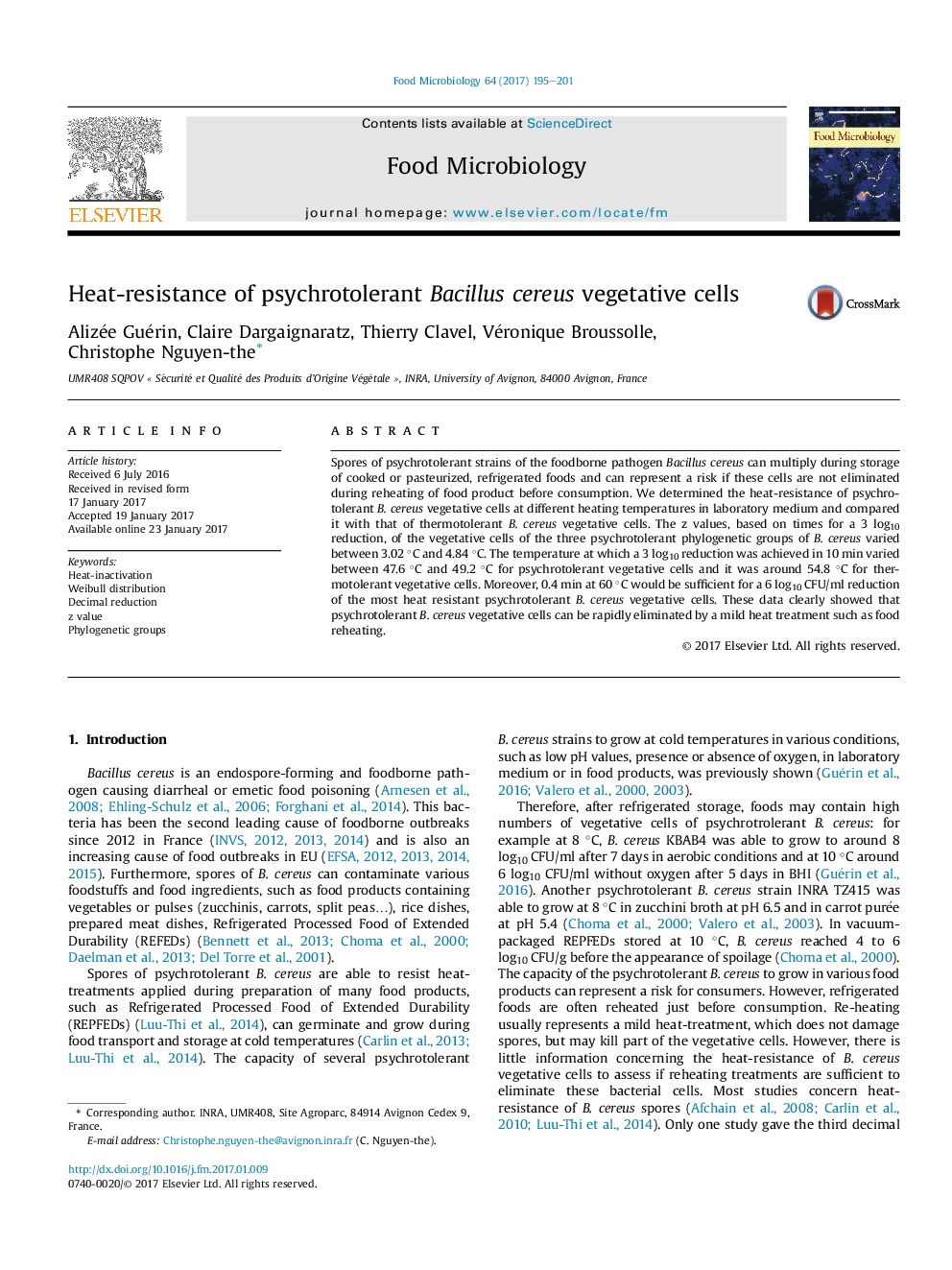| Article ID | Journal | Published Year | Pages | File Type |
|---|---|---|---|---|
| 5740226 | Food Microbiology | 2017 | 7 Pages |
â¢Vegetative cells of psychrotolerant B. cereus are very heat sensitive.â¢A 3 decimals reduction at 50 °C takes between 1.8 and 8.1 min.â¢z values calculated on time for 3 decimals reduction are between 3.0 and 4.8 °C.â¢Cells from psychrotolerant and thermotolerant B. cereus had the same z values.
Spores of psychrotolerant strains of the foodborne pathogen Bacillus cereus can multiply during storage of cooked or pasteurized, refrigerated foods and can represent a risk if these cells are not eliminated during reheating of food product before consumption. We determined the heat-resistance of psychrotolerant B. cereus vegetative cells at different heating temperatures in laboratory medium and compared it with that of thermotolerant B. cereus vegetative cells. The z values, based on times for a 3 log10 reduction, of the vegetative cells of the three psychrotolerant phylogenetic groups of B. cereus varied between 3.02 °C and 4.84 °C. The temperature at which a 3 log10 reduction was achieved in 10 min varied between 47.6 °C and 49.2 °C for psychrotolerant vegetative cells and it was around 54.8 °C for thermotolerant vegetative cells. Moreover, 0.4 min at 60 °C would be sufficient for a 6 log10 CFU/ml reduction of the most heat resistant psychrotolerant B. cereus vegetative cells. These data clearly showed that psychrotolerant B. cereus vegetative cells can be rapidly eliminated by a mild heat treatment such as food reheating.
